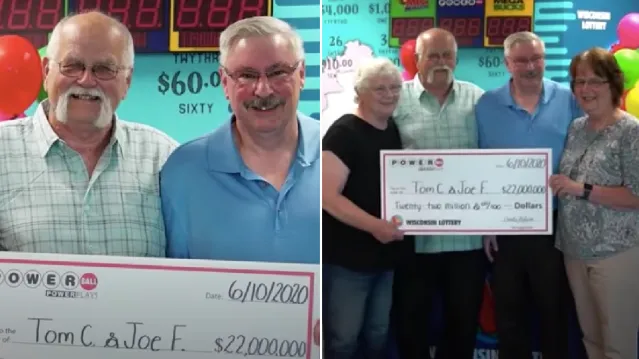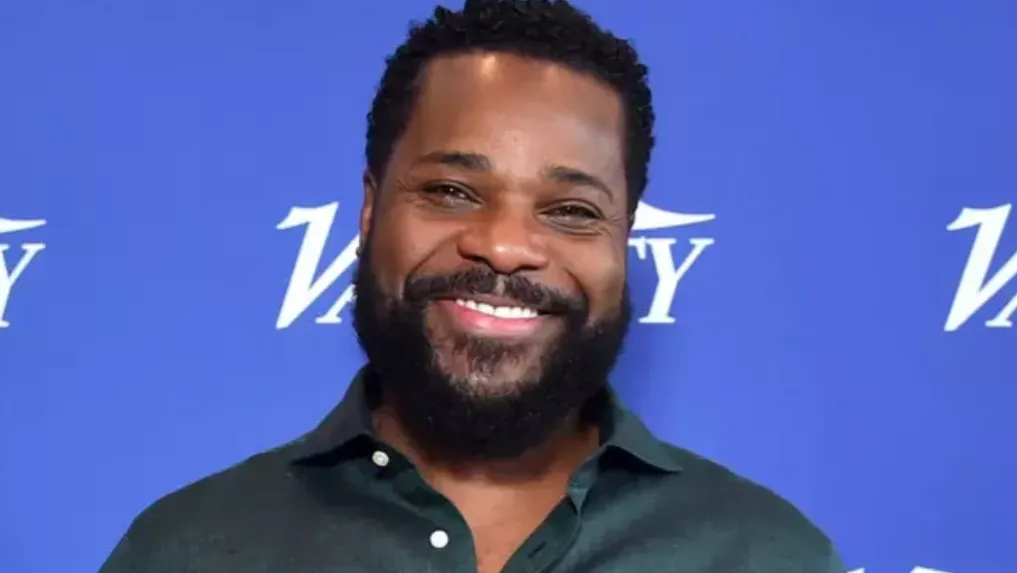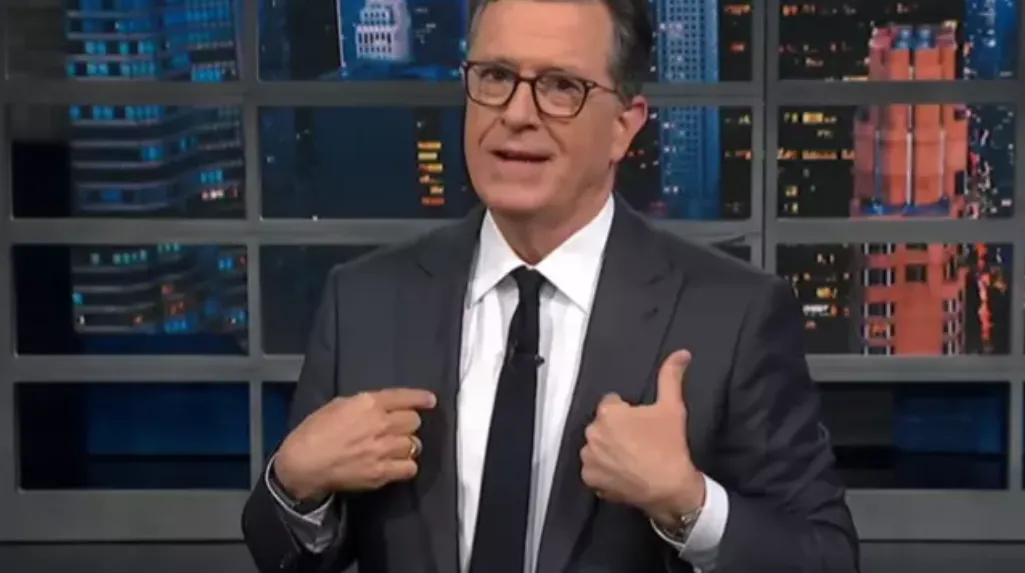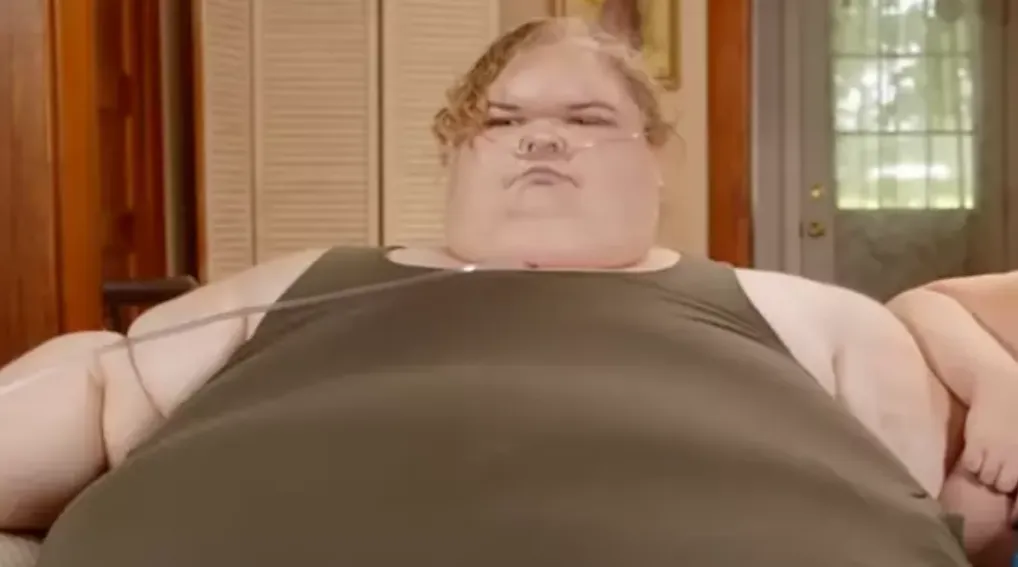D-Day veteran and TikTok star 'Papa Jake' Larson dies at 102
Larson enlisted in the National Guard in 1938, lying about his age since he was only 15 at the time.
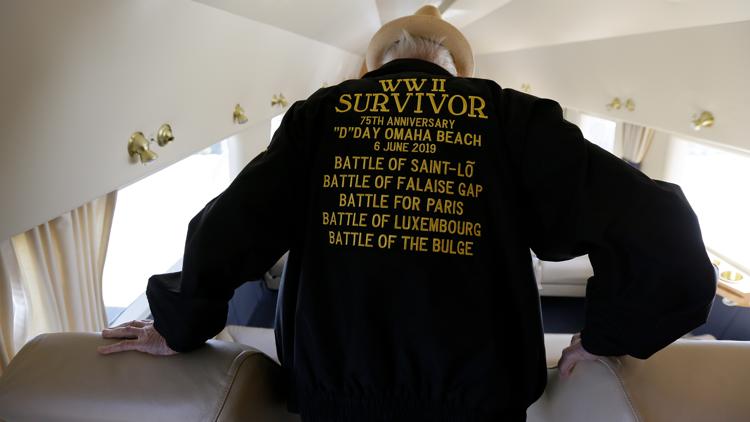
D-Day veteran Jake Larson walks to a seat before going for a ride in the "The Spirit of Benovia" WWII-era aircraft in Oakland, Calif, April 29, 2019
PARIS, France — D-Day veteran ″Papa Jake″ Larson, who survived German gunfire on Normandy's bluffs in 1944 and then garnered 1.2 million followers on TikTok late in life by sharing stories to commemorate World War II and his fallen comrades, has died at 102.
An animated speaker who charmed strangers young and old with his quick smile and generous hugs, the self-described country boy from Minnesota was ‘’cracking jokes til the end,'' his granddaughter wrote in announcing his death.
Tributes to him quickly filled his “Story Time with Papa Jake" TikTok account from across the United States, where he had been living in Lafayette, California. Towns around Normandy, still grateful to Allied forces who helped defeat the occupying Nazis in World War II, paid him homage too.
"Our beloved Papa Jake has passed away on July 17th at 102 years young," granddaughter McKaela Larson posted on his social media accounts. “He went peacefully.”
“As Papa would say, love you all the mostest,” she wrote.
Born Dec. 20, 1922, in Owatonna, Minnesota, Larson enlisted in the National Guard in 1938, lying about his age since he was only 15 at the time. In 1942, he was sent overseas and was stationed in Northern Ireland. He became operations sergeant and assembled the planning books for the invasion of Normandy.
He was among the nearly 160,000 Allied troops who stormed the Normandy shore on D-Day, June 6, 1944, surviving machine-gun fire when he landed on Omaha Beach. He made it unhurt to the bluffs that overlook the beach, then studded with German gun emplacements that mowed down American soldiers.
“We are the lucky ones,” Larson told The Associated Press at the 81st anniversary of D-Day in June, speaking amid the immaculate rows of graves at the American cemetery overlooking Omaha Beach.
“We are their family. We have the responsibility to honor these guys who gave us a chance to be alive.”
He went on to fight through the Battle of the Bulge, a grueling month-long fight in Belgium and Luxembourg that was one of the defining moments of the war and of Hitler's defeat. His service earned him a Bronze Star and a French Legion of Honor award.
In recent years, Larson made repeated trips to Normandy for D-Day commemorations — and at every stop, “Papa Jake” was greeted by people asking for a selfie. In return, he offered up a big hug, to their greatest joy.
One memorable encounter came in 2023, when he came across Bill Gladden, a then-99-year-old British veteran who survived a glider landing on D-Day and a bullet that tore through his ankle.
“I want to give you a hug, thank you. I got tears in my eyes. We were meant to meet,” Larson told Gladden, as their hands, lined and spotted with age, clasped tightly. Gladden died the following year.
In his TikTok posts and interviews, Larson combined humorous anecdotes with somber reminders about the horrors of war.
Reflecting to AP on the three years he was in Europe, Larson said he is “no hero.” Speaking in 2024, he also had a message to world leaders: “Make peace not war.”
He often called himself “the luckiest man in the world,” and expressed awe at all the attention he was getting. “I’m just a country boy. Now I’m a star on TikTok,” he told AP in 2023. "I’m a legend! I didn’t plan this, it came about.”
Small-town museums and groups around Normandy that work to honor D-Day's heroes and fallen shared tributes online to Larson, one of their most loyal visitors.
“He was an exceptional witness and bearer of memory,” the Overlord Museum posted on Facebook.
“He came every year to the museum, with his smile, his humility and his tales that touched all generations. His stories will continue to live. Rest in peace Papa Jake,” it read.
“Thanks for everything.”
Copyright 2025 Associated Press. All rights reserved. This material may not be published, broadcast, rewritten, or redistributed.
Dad with deadly brain cancer that kills in a year is cancer free after taking new drug
A breakthrough drug is fighting brain cancer head-on.
Glioblastoma is widely considered the deadliest form of brain cancer, killing over 10,000 Americans each year. There is no cure for the highly aggressive disease — many patients survive just nine months after diagnosis.

Ben Trotman was diagnosed with glioblastoma in October 2022 at 40.
Treatment focuses on managing symptoms and extending life via surgery to remove as much of the tumor as possible and radiation therapy and chemotherapy to destroy cancer cells.
Now, researchers from University College London Hospitals are recruiting glioblastoma patients for a trial of the immunotherapy drug ipilimumab. Sold under the brand name Yervoy, the monoclonal antibody stimulates the immune system to recognize and attack cancer cells.
Oncologists are optimistic since a UK father shows no signs of having a tumor after he took ipilimumab before his glioblastoma treatment.
Ben Trotman was diagnosed with glioblastoma in October 2022 at 40.
“The crucial element of this trial is that patients will have their immune system boosted by the drug before they have any other treatment, when they are fit and well enough to tolerate the immunotherapy,” said Dr. Paul Mulholland, the consultant medical oncologist leading the trial.
“We saw with Ben, the one patient recruited to the immunotherapy study, NeAT-GLIO, that he has had clear scans since having the treatment and the tumor hasn’t returned more than two and a half years later.”

Glioblastoma is widely considered the deadliest form of brain cancer, killing over 10,000 Americans each year.
Trotman met with Mulholland, who enrolled him in a clinical trial for ipilimumab. He was the first patient in the world — and the only person in the trial — to take the drug before glioblastoma treatment.
“Getting this diagnosis was the most traumatic experience,” said Trotman’s wife, Emily.
“We were grappling with the fact that Ben had gone from being apparently perfectly healthy to having months to live.”
After taking the drug, Ben underwent radiotherapy and chemotherapy.
Two years and eight months later, his scans are clear.
“It is very unusual to have a clear scan with glioblastoma, especially when he didn’t have the follow-up surgery that had been planned to remove all of the tumor that was initially visible on scans,” Mulholland said.

Ben and Emily Trotman wed in 2023, after he began his immunotherapy treatment.
“We hope that the immunotherapy and follow-up treatment Ben has had will hold his tumor at bay,” he added, “and it has so far, which we are delighted to see.”
In January 2023, months after his diagnosis, Ben married Emily. The couple welcomed a daughter, Mabel, earlier this year.
They enjoy taking her for walks along with their rescue dog, Jerry.
“We are trying to live as normal a life as possible,” Emily said.
“We are in a unique position of which there is no precedent and which comes with a great deal of uncertainty,” she continued. “We want to live each day as if it were our last, but we also want to plan for the future, which we hope to have.”
Researchers plan to recruit 16 glioblastoma patients like Ben over 18 months.
After taking ipilimumab, the trial participants will undergo radiotherapy and chemotherapy and perhaps surgery depending on the extent of their disease.

Dr. Paul Mulholland and Dame Siobhain McDonagh, who raised funds for the new clinical trial of ipilimumab.
The trial is being funded by Dame Siobhain McDonagh, a member of the British Parliament, whose sister died of glioblastoma in 2023.
“My beloved sister Margaret was appalled to discover that there had been no advances in brain cancer treatment for decades when she was diagnosed with glioblastoma,” McDonagh said. “Changing this was Margaret’s final campaign and one that I have continued in her memory.”
Treatment will take place at the NIHR UCLH’s Clinical Research Facility at the National Hospital for Neurology and Neurosurgery.
“I am delighted that this new trial, with the same immunotherapy drug I received, is going ahead and others will have the opportunity to take part,” Ben said. “It will give people newly diagnosed with glioblastoma some hope.”

